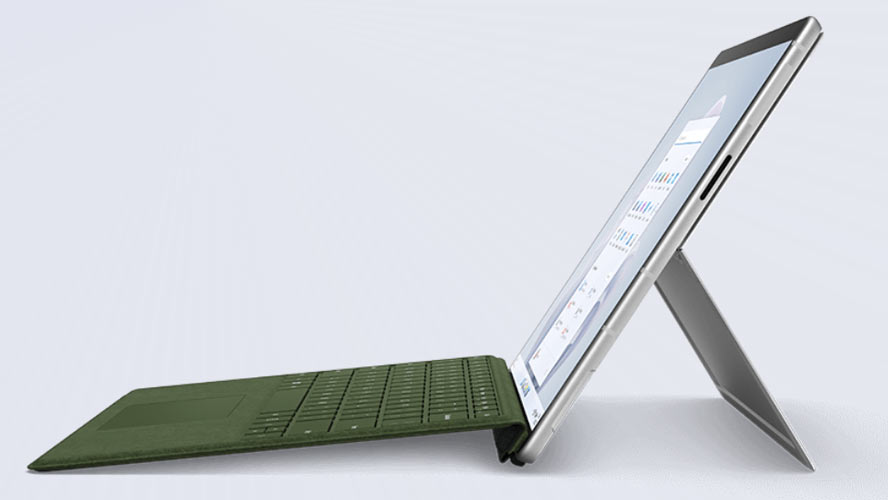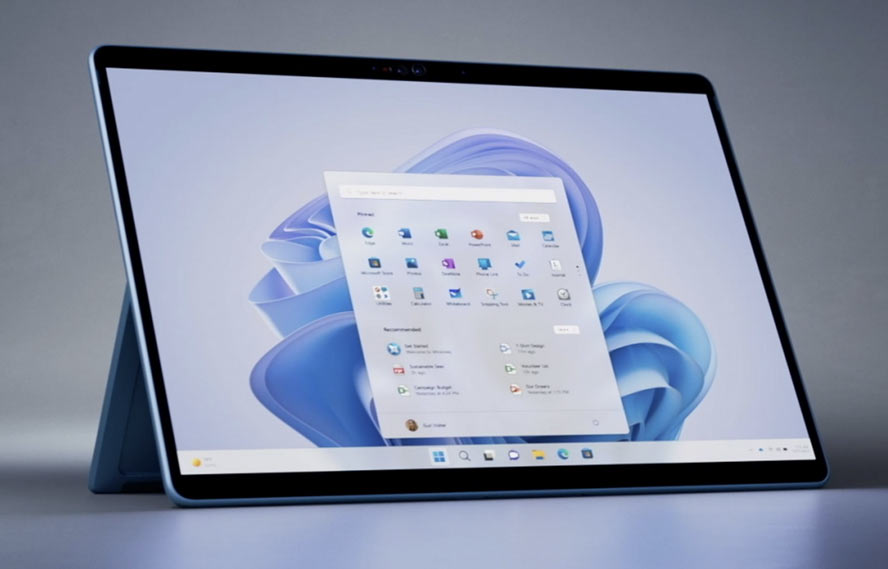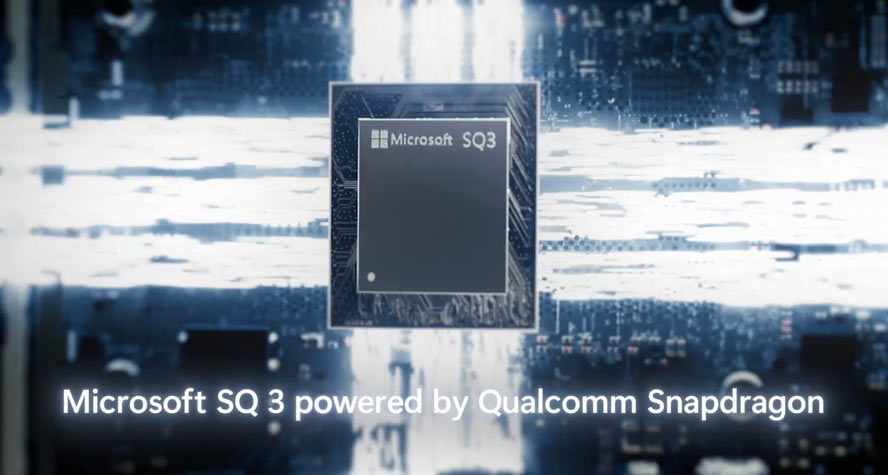Microsoft Reportedly Making New CPU for Windows 12
But it may be another customized Snapdragon, rather than a wholly internal project.

Microsoft is actively expanding a team tasked with making a new challenger to Apple Silicon, according to a report by Windows Latest. Like Apple's M series processors, the new Microsoft SoCs will be based on Arm architecture, the report claims. But making the SoC development somewhat more exciting, Microsoft is said to be working in parallel to make sure Windows 12 will be Arm optimized.
Information about a new Microsoft-designed Arm chip comes from several sources, Windows Latest discloses. A few job listings, like this one, are said to provide clues; several other job listings have been removed at the time of writing. In addition to these listings, an unnamed source indicated to Windows Latest that "Microsoft is optimizing Windows 12 for Silicon-ARM architecture."
Pondering over the still-live 'Senior Product Engineer' job listing reveals that the candidate will work for "the Microsoft Silicon team" and be tasked with a wide range of semiconductor development processes to advance Azure, XBOX, Surface, and HoloLens using Microsoft's "internally developed silicon components." The lengthy job description mentions various silicon design and testing tasks.

In another job description, which isn't sourced, Microsoft is specifically recruiting a 'Principal System on Chip (SoC) Silicon Architect.' It seeks someone with experience in high-performance SOC architecture and CPU and GPU architecture and design. The main role of this recruit will be in "building complex, state-of-the-art SOCs using leading silicon technology nodes and will collaborate closely with internal customers and partners," relays Windows Latest.
We aren't sure where the leap of faith or logic that the above team members will be designing a chip for Windows 12 comes from. We only have the related statement from Windows Latest about Windows 12 being optimized for Arm. So, please add a pinch of salt to the idea that Microsoft is readying an Apple M2 killer under its own efforts/brand. It would be more traditional for it to work with the likes of Qualcomm, which reckons it has an Arm chip with something special coming soon, thanks to the work of the ex-Nuvia team.
Some Context - Microsoft SQ Series - A Collaboration With Qualcomm
It wouldn't be so surprising if Microsoft's Silicon Team was working on a new Surface chip, as it has done so before. Less than three years ago it launched the Surface Pro X 2-in-1 with a custom Microsoft SQ1 processor (7W). That chip arrived with a lot of boasts about its CPU, GPU, and AI processing, but the claims, and compatibility, fell a little flat in practice (see linked review above). However, the Microsoft Surface Pro 9 launched last November with a new SQ3 chip, and did a lot better, as you can read in our review.
Get Tom's Hardware's best news and in-depth reviews, straight to your inbox.

The SQ series Arm processors, which are custom designed for Surface portable devices, are collaboratively designed with Qualcomm doing most of the heavy lifting. These chips are based on contemporary Snapdragon 8CX designs, so when the Nuvia chips arrive, Microsoft might have a parallel SQ model taking advantage of the newer cores. The first Snapdragon with Nuvia cores is expected to be the Snapdragon 8cx Gen 4 Processor, and should emerge near year-end.
Some Windows 12 Nuggets
Windows 12 is still very much an unknown but news of it has been cropping up more frequently in recent months. Windows 12 development was supposed to have started in earnest this March, and we have seen Intel Meteor Lake chips being prepared with Windows 12 support.
Windows Latest shared some nuggets regarding the new OS from Microsoft that are interesting enough to relay here. It says that Windows 12 has a targeted release date of late 2024. As part of the Windows Core project, version 12 should be more modular and customizable for different form factors - which will be further boosted by good Arm optimization.
Moreover, the built-in AI acceleration in modern processors will give utilities we have already seen in Windows 11 a smart boost. The source says that an AI-driven smart snap window arranging tool seen in Windows 11 is an example of something that could be standard in 12. Pausing for thought, could an AI coprocessor thus become a minimum requirement in Windows 12?

Mark Tyson is a news editor at Tom's Hardware. He enjoys covering the full breadth of PC tech; from business and semiconductor design to products approaching the edge of reason.
-
ezst036 Microsoft better be careful. They have aped Apple for years, but they simply do not have the ability that Apple has to create a cult-like following. Even now, Windows has been in a decline for over a decade. If Microsoft wishes to have Apple's former 5% of the market, they might find that that's exactly what they end up with.Reply
If Windows loses x86, along with it goes one of their prime "edge" reasons for existing, Legacy. Legacy applications go a long way toward maintaining what is left of Windows' dominance.
Currently, Windows is less than 70% as it stands. It isn't going to go higher. In the switch to ARM Microsoft is the big loser. Apple in particular, but Linux as well are the winners. Look at the purple bar representing MacOS growth. The trend cannot be denied.
-
USAFRet Reply
This isn;t a 100% ARM-only thing.ezst036 said:Currently, Windows is less than 70% as it stands. It isn't going to go higher. In the switch to ARM Microsoft is the big loser. Apple in particular, but Linux as well are the winners. Look at the purple bar representing MacOS growth. The trend cannot be denied.
Looks to just be aimed at future Surface devices, that they don't sell many of anyway. -
Amdlova Microsoft will make a new cpu low power high efficient. Software team make windows 12 with high bloatware and other shinigamis make the thing slow like a atom cpu. One year after abandon the project...Reply -
JamesJones44 Replyezst036 said:Legacy. Legacy applications go a long way toward maintaining what is left of Windows' dominance.
Those legacy apps get fewer and fewer each day. At this point, if a company hasn't switched to a modern runtime or compiler that supports both ARM and x86 isas then never will and those using that legacy software will likely be looking for a replacement.
We have many customers wanting to run on AWS Gravitons and other ARM based hardware, those requests are growing by the day. About 4 year ago we transitioned all of our software to be x86 and ARM compatible. The transition wasn't that bad and it has gotten easier to do than when we did it. -
bit_user Reply
I don't doubt that, but I do doubt the accuracy of that StatCounter site that doesn't list its data sources.ezst036 said:Even now, Windows has been in a decline for over a decade.
My employer uses Windows and we don't run any legacy apps. They could replace my x86 laptop with an ARM-based one, tomorrow, and I doubt I'd even notice.ezst036 said:If Windows loses x86, along with it goes one of their prime "edge" reasons for existing, Legacy. Legacy applications go a long way toward maintaining what is left of Windows' dominance.
As for most of those who do still run (non-gaming) legacy apps, Win 11 finally has x86-64 emulation on ARM. Sure, you take a speed hit, but then again such apps are probably 5+ years old and certainly run faster on modern ARM CPUs than they ran natively on the x86 CPUs that existed when they were released.
70% is a marketshare many companies would kill for. And MS is financially doing very well off it. If all they do is stem the defection to Apple, then that would be enough.ezst036 said:Currently, Windows is less than 70% as it stands. It isn't going to go higher.
Really, what else do you expect MS to do? Just sit back and watch its marketshare drain away? Of course they're going to do something about it!
Windows has been multi-ISA since the very inception of Windows NT, 30 years ago. That's worked fine for them. No reason they can't continue to support both x86 and ARM, as they've done for probably the better part of the past decade!ezst036 said:In the switch to ARM Microsoft is the big loser. -
bit_user The killer question is what is MS actually doing? As the article implies, it sounds like this effort is more than just continuing their partnership with Qualcomm. Could MS be working on its own Plan B, in case the litigation between ARM and Qualcomm goes badly or further drags out the launch of Nuvia-based SoCs?Reply
The one thing we can say for sure is that MS isn't designing its own CPU cores. Qualcomm remains its only viable avenue to release anything with a hope of competing with Apple. However, they could do alright by continuing with ARM's own cores.